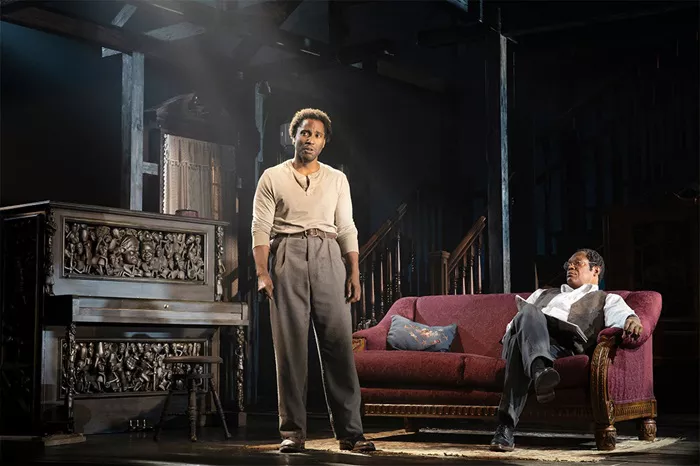In adapting August Wilson’s Pulitzer Prize-winning play The Piano Lesson for the screen, first-time director Malcolm Washington rises to the challenge of translating the legendary playwright’s rich, poetic language into an immersive visual experience. Wilson’s works, infused with the complex histories of African Americans, are known for their emotional depth and profound social commentary. With The Piano Lesson, Washington not only honors this tradition but also expands upon it, delivering a cinematic vision that stands out in the growing canon of Wilson adaptations.
Washington, the son of the acclaimed actor Denzel Washington, follows in his father’s footsteps, as the elder Washington has long been committed to bringing Wilson’s work to the big screen. Having directed Fences and produced Ma Rainey’s Black Bottom, Denzel Washington’s influence is palpable in the younger Washington’s direction, with both his father and older brother, John David Washington, playing key roles in the film. John David portrays Boy Willie, the determined and conflicted protagonist.
The film opens with a vivid and symbolic scene—a young Black boy and his father make a harrowing escape from a plantation, carrying with them an object of great value. The narrative swiftly moves forward to 1936, where the boy has grown into Boy Willie, a man with dreams of purchasing the very land on which his ancestors once labored. He arrives unannounced at the home of his sister Berniece (Danielle Deadwyler), seeking her help to sell the family’s prized heirloom: a piano carved with the faces of their ancestors. The land, he believes, holds the key to his family’s future, but to buy it, he must part with the piano—a symbol of his family’s history and legacy.
The clash between Boy Willie’s desire to control the land and Berniece’s resistance, which stems from her belief that the piano must remain in the family, drives the film’s central conflict. Berniece, played by Deadwyler in a gripping and complex performance, insists that the piano be kept in the family, despite it having been neglected for years. While Boy Willie sees the piano as a means to a practical end, Berniece views it as a sacred artifact, a living testament to her heritage.
Washington’s direction brings a fresh energy to this familial battle, balancing the power dynamics with a visual style that elevates Wilson’s language. Cinematographer Mike Gioulakis, known for his work on films by Jordan Peele and M. Night Shyamalan, adds a haunting quality to the story, as the tension between past and present, legacy and progress, manifests not only in the dialogue but in the eerie atmosphere surrounding the characters.
In addition to the emotional tug-of-war between the siblings, the film introduces a supernatural element that intensifies the narrative. As Boy Willie and Berniece grapple with their inherited trauma, the two are confronted by the literal ghosts of the past. The film culminates in a dramatic exorcism, blending elements of horror with a deep exploration of grief, guilt, and the weight of history.
With The Piano Lesson, Malcolm Washington proves himself to be a director of considerable skill and vision. The film’s combination of strong performances, striking visuals, and an evocative score, elevates Wilson’s already powerful text into a visceral cinematic experience. As the film becomes part of Denzel Washington’s ongoing effort to honor August Wilson’s legacy, it stands as a significant achievement in contemporary American cinema, solidifying Malcolm Washington as a director to watch in the years to come.
Related topic:
VFX Artists’ Glowing Review of 1985 ‘Return to Oz’ 39 Years Later
Dwayne Johnson’s “Red One” Faces a Rough Week 2 at the Box Office
‘Wolf Man’ Stars Reveal First Reactions to Creature’s New Look

